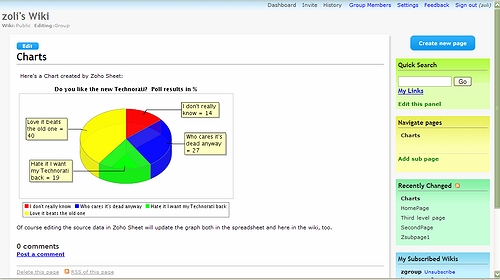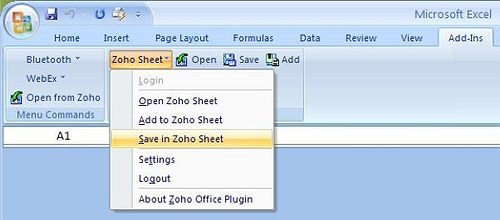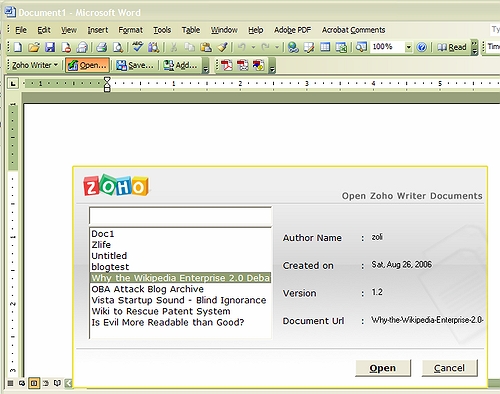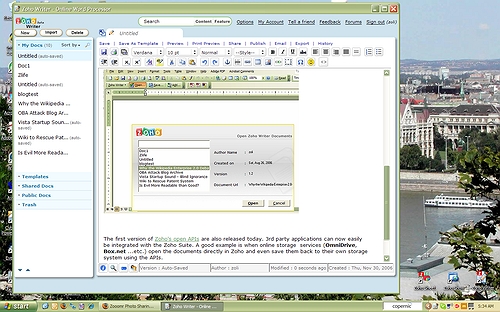No, this is not an anti-wiki pitch, that would be highly unlikely coming from me. But I am continually amazed how we tend to focus on features while missing the people factor. Knowledge Management is a prime example. KM projects typically do not fail due to software issues, but for human reasons: lack of input, or GIGO. Yet here’s an excerpt from a white paper by enterprise wiki vendor MindTouch::
“Wikis provide a flexible alternative to the rigidity of conventional
knowledge management software.
Why wikis work for knowledge management
Based on the features described above, wikis are a powerful replacement for conventional
knowledge management software, because they make knowledge easier to
capture, find and consume:
a. Capturing information: The information is there. Somewhere. Maybe on
a PC, maybe in a file attached to an email, maybe in someone’s head
undocumented. With a wiki, all documents are stored in one central
repository, and files are uploaded rather than attached to emails. Therefore
information is more likely to be captured, stored and made available for reuse.
b. Finding information: When a user has to search a network file server,
he or she must know exactly where to look. A wiki lets a user search
contextually. In addition, because the structure is not required to be linear—
as with KM software—cross-linking of pages helps users not only find
information, but find relevant information.
c. Consuming information: In addition to finding information more easily with
a wiki, a user finds that information in context, meaning the information
is in a location that gives the user some background and perspective relative
to the data. That enables the user to more quickly comprehend the meaning,
significance and relevance of that piece of information. “
All of the above is true – yet it misses the Big Picture. The real story is not about a better tool, but being able to work differently. When wikis are truly embraced in the enterprise, they don’t just make KM easier; they put it out of it’s misery. Yes, that’s right, the wiki is the end of Knowledge Management as we know it: the after-the-fact collection, organization and redistribution of knowledge objects.
The wiki becomes the primary platform to conduct work, the fabric of everyday business, where people create, collaborate, and in the process capture information. While not a Knowledge Management tool, the wiki resolves the KM-problem as a by-product.
Update (6/15/08): Now we have pretty good terms to describe the above, instead of my clumsy explanation. See the discussion on In-the-Flow and Above-the-Flow wikis by Michael Idinopulos and Ross Mayfield.
Ross Mayfield talks about similar ideas in Manage Knowledgement (MK):
“Turns out, users resisted and the algorithms didn’t match reality. With MK, through blogs and wikis, the principle activity is sharing, driven by social incentives. Contribution is simple and unstructured, isn’t a side activity and there is permission to participate. Intelligence is provided by participants, both through the act of sharing and simply leaving behind breadcrumbs of attention.”
Update (5/1): What Happened to Knowledge Management? – by Stewart Mader


 (Updated)
(Updated) (And in fairness they have a different business model)
(And in fairness they have a different business model)

 It’s nice to get your dream fulfilled fast. Writing about Socialtext 2.0 in October I wrote: “My ‘
It’s nice to get your dream fulfilled fast. Writing about Socialtext 2.0 in October I wrote: “My ‘

 My first thought was deja vu… I myself reported on Mike and Scott winning the
My first thought was deja vu… I myself reported on Mike and Scott winning the 






Recent Comments